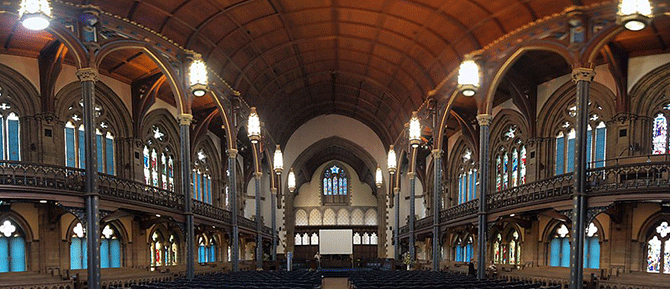Install the app
Install this application on your home screen for quick and easy access when you’re on the go.
Just tap then “Add to Home Screen”
Install this application on your home screen for quick and easy access when you’re on the go.
Just tap then “Add to Home Screen”
Install this application on your home screen for quick and easy access when you’re on the go.
Just tap then “Add to Home Screen”

Time 1800-1930 - Thursday 4 September
Location Bute Hall - See here for location
Welcome address Nicola Sturgeon, Deputy First Minister of Scotland
Keynote lecture Iain McLean, University of Oxford
Parliaments in Fiscal Federalism: Spending too Much, Taxing too Little?
The imminence of the Scottish independence referendum prompts some general reflections on subordinate parliaments and fiscal federalism, which are discussed in this year's Keynote Lecture by Iain McLean. Typically, the power to tax lies with the upper tier of government (because it finds it easier to collect taxes), while much of the duty to spend, or pleasure of spending, lies with the lower tier of government, which is closer to the people and their needs. But this sets up a classic moral hazard: under fiscal federalism, rational action by both orders of government leads their parliaments, in aggregate, to spend too much and tax too little. Typically, there are unproductive games between the orders of government as each seeks to blame the other. Some possible ways out of this dilemma are explored by Professor McLean.
Roundtable 1 Democracy and its Discontents
Time 1400-1530 - Friday 5 September
Location Bute Hall
Representation is the institutional cornerstone of most contemporary understandings of democratic practice. At the same time, traditional forms of political representation have faced numerous threats in recent years in connection with the decline of mass parties, rising political disaffection, policy constraints posed by globalisation and recent economic strains.
This roundtable will consider current issues in representation at national and European levels, including aspects of representation related to institutional design, political accountability and public engagement with politics. Roundtable participants will be invited to reflect on the causes of challenges to representation and to evaluate measures that might be employed to address these challenges.
Chair Sarah Birch, University of Glasgow
Speakers
Dirk Berg-Schlosser, University of Marburg
Rosie Campbell, University of London, Birkbeck
Leonardo Morlino, LUISS University, Rome
Matthew Flinders, University of Sheffield
Roundtable 2 Contested Human Rights
Time 1400-1530 - Saturday 6 September
Location Bute Hall - See here for location
Human rights claims have become ubiquitous in 21st-century international society. International actors’ reputations and notions of what it means to be democratic are more closely tied to human rights performance than at any other point in history. Despite the greater international prominence and importance of rights norms, such claims remain contested across different societies and within the international community more broadly.
For example, while rhetorical commitment to human rights has grown dramatically since the 1980s, many scholars question the extent to which states and other actors comply with rights norms by translating words into deeds. Further, as human rights principles have gained legitimacy over time, they have been applied to an ever greater number of issues, often generating controversy over what a proper human rights claim entails.
This roundtable examines the contested nature of the contemporary international human rights regime by exploring controversies surrounding the creation of new rights claims related to sexuality, migrants and the environment as well as older but still relevant debates about compliance with human rights principles. At the heart of these controversies remains a fundamental debate about how truly universal rights claims are and the extent to which such universalizing claims can be made to stretch beyond the western traditions that gave rise to them.
Chair Kelly Kollman, University of Glasgow
Speakers
John Dryzek, University of Canberra
Jan Willem Duyvendak, University of Amsterdam
Todd Landman, University of Essex
Christina Boswell, University of Edinburgh